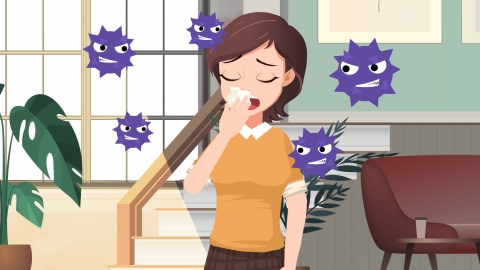What are the symptoms of influenza in children?
Generally speaking, influenza refers to the flu. Symptoms of the flu in children include nasal congestion and runny nose, fever, cough, nausea and vomiting, and muscle pain, among others. A detailed analysis is as follows:

1. Nasal Congestion and Runny Nose
Influenza virus may adhere to the nasal mucosa, invade mucosal cells, cause nasal mucosal congestion and edema, trigger local inflammatory reactions, and lead to runny nose. This may cause breathing difficulties in children, particularly noticeable during nighttime sleep.
2. Fever
Influenza virus replicates within the child's body, stimulating the immune response to release pyrogens that act on the body's temperature regulation center, causing the body temperature to rise above 39℃ for several days, accompanied by chills and shivering.
3. Cough
Influenza virus reproduces within respiratory epithelial cells, triggering inflammatory responses that stimulate respiratory mucosal secretions, leading to cough reflexes accompanied by sore throat or discomfort. In severe cases, it may affect the child's eating and speaking abilities.
4. Nausea and Vomiting
Influenza virus may attack gastrointestinal mucosa, causing gastrointestinal dysfunction. Some children may experience nausea, vomiting, and other gastrointestinal symptoms, leading to poor appetite, further affecting nutrient intake and recovery.
5. Muscle Pain
Influenza virus may lead to the accumulation of metabolic products such as lactic acid in the body. Inflammatory reactions caused by the virus may stimulate nerve endings, resulting in generalized muscle or joint pain in children, along with muscle stiffness and a feeling of weakness, affecting the child's daily activities.
If a child's symptoms continue to worsen or show signs of complications, timely medical treatment should be sought. At the same time, parents should take preventive measures, such as maintaining good hygiene habits and encouraging physical exercise, to reduce the risk of children contracting influenza.







